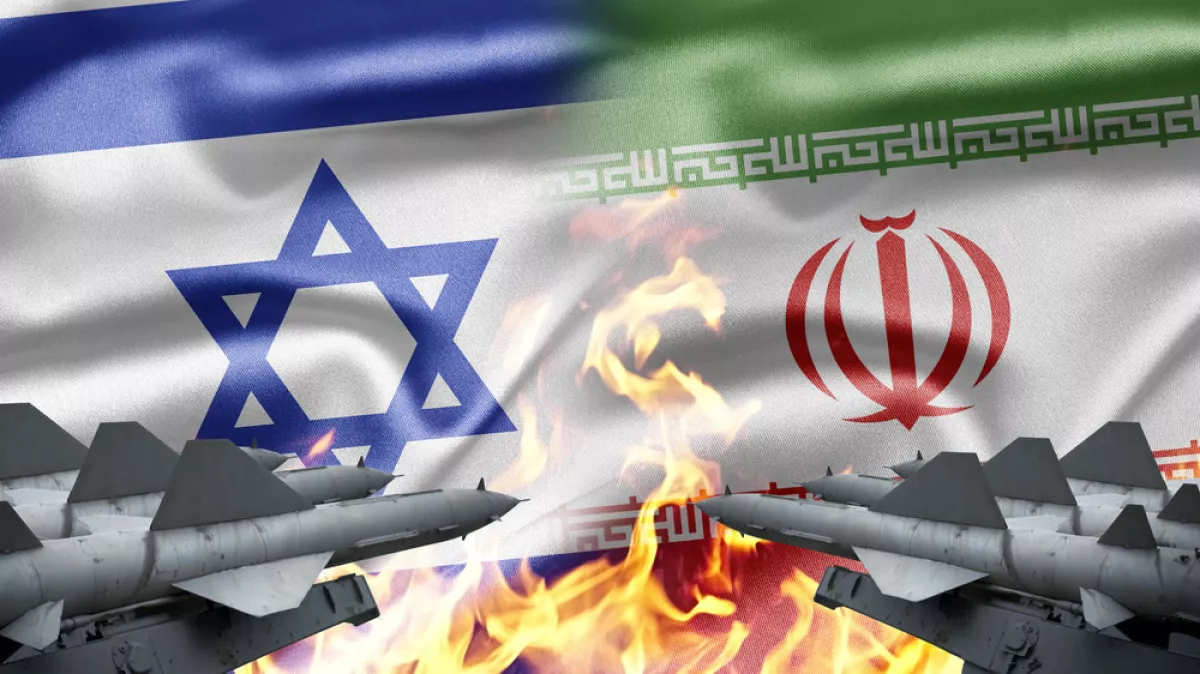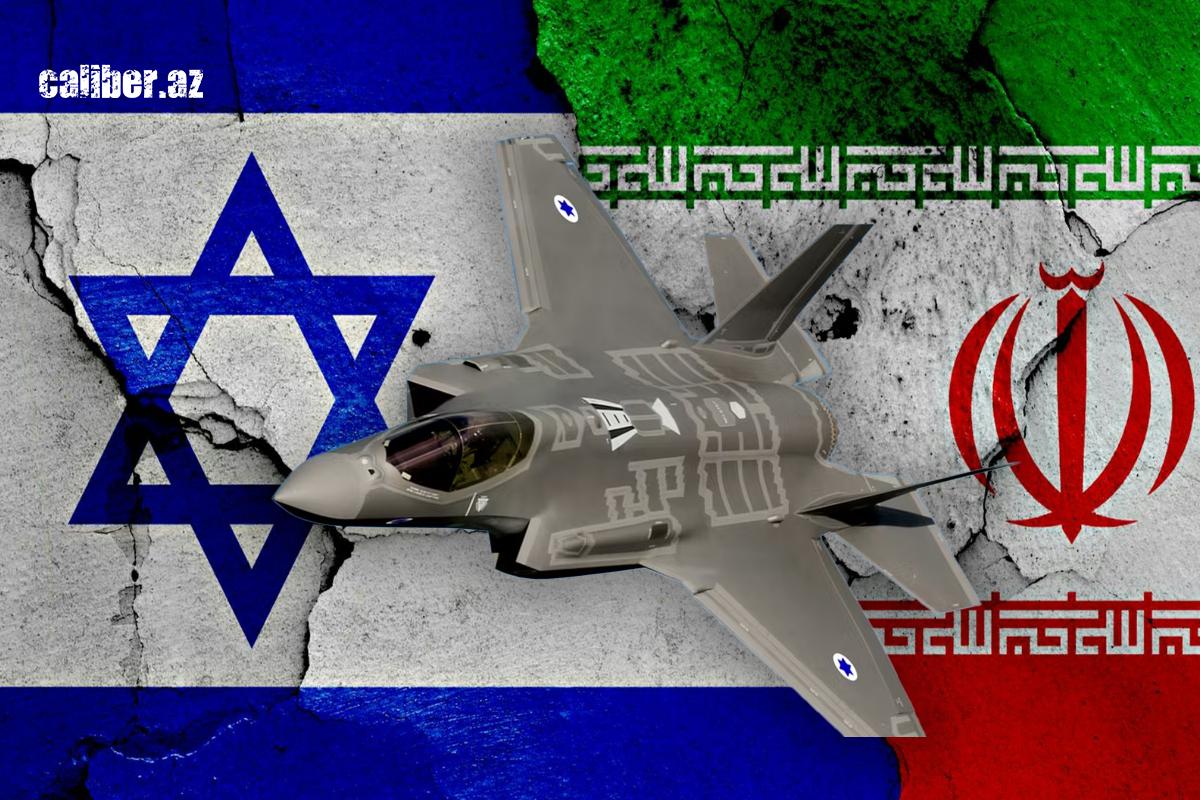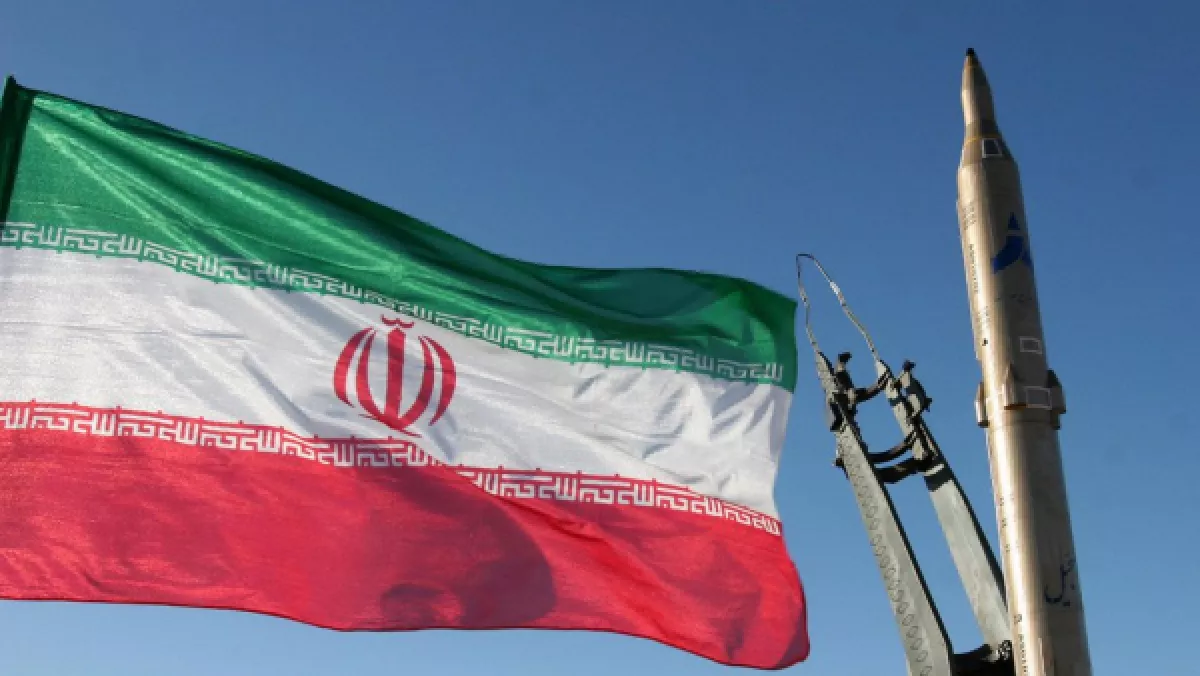Israel's calculated strikes against Iran Escalation or restraint?
Early October 26, Israel struck military targets in Iran. Representatives of the Israel Defense Forces (IDF) stated that the strikes were a response to "continuous attacks" from Iran. Explosions were heard in Tehran, according to Iranian state media, and Tehran's air defence corps claimed that its systems were activated at least twice, resulting in "limited damage" in some areas.
The IDF reported that it targeted missile production facilities, arrays of surface-to-air missile systems, and other sites; earlier, an Israeli official stated that they did not strike Iran's oil or nuclear facilities. " I can now confirm that we have concluded the Israeli response to Iran's attacks against Israel," said IDF spokesperson Rear Admiral Daniel Hagari in a video address.
American and Israeli officials reported that three waves of airstrikes were carried out against Iran on October 26 morning local time. The first wave targeted Iran's air defence system, while the second and third waves were aimed at missile and drone bases, as well as weapon production sites.
Iran, for its part, claimed to have repelled the Israeli attack and stated that military facilities across the country sustained only "limited damage."
The operation involved 140 aircraft flying approximately 1,600 kilometres. This was a true armada, showcasing Israel's capability to launch massive strikes against Iran.
Israeli officials pointed out that the attack was conducted in response to Iran's ballistic missile strike on October 1.

Strangely enough, Israel acted with considerable caution. It sent a message to Iran before the attack, warning them of its intentions. This was reported by Axios, which has significant sources within the leadership of the US, Israel, and several other countries, combining brief informative reports with event analysis.
What is known so far? Israel sent a message to Iran on October 25 ahead of the retaliatory airstrikes, warning the Iranians not to respond. According to Axios, this information came from three sources that were familiar with the matter. The Israeli message was an attempt to limit the ongoing exchange of strikes between Israel and Iran and to prevent broader escalation, the sources said. They noted that the Israeli message was conveyed to the Iranians through third parties. " The Israelis made it clear to the Iranians in advance what they are going to attack in general and what they are not going to attack," one Axios source stated. Two others reported that Israel warned the Iranians not to retaliate, emphasizing that if Iran took countermeasures, Israel would conduct another, more significant attack, especially if Israeli civilians were killed or injured as a result of the Iranian response.
Iran previously stated that it does not seek a full-scale war with Israel but would take retaliatory measures if attacked.
On October 26, IDF spokesperson Rear Admiral Daniel Hagari told reporters that if Iran escalates in response to Israeli strikes, Israel will be compelled to retaliate again.
An American official stated that the US did not participate in the Israeli operation; however, if Iran takes countermeasures, the US is prepared to defend Israel against such an attack. "This should be the end of the direct military exchange between Israel and Iran," the official added. " If Iran attacks Israel again there will be consequences. We communicated that directly and indirectly to Iran."
According to one source, one of the channels for conveying messages to Iran before the Israeli strike was Dutch Foreign Minister Caspar Veldkamp.
"I spoke with the Iranian Foreign Minister about war and the heightened tensions in the region. Regarding the latter, I urged for restraint. All parties must work to prevent further escalation," Veldkamp wrote on X just hours before the Israeli attack.
For their part, American officials indicated that they expect a response from Iran to the Israeli attack in the coming days, but in a limited capacity that would allow Israel to break the cycle of "strike and counter-strike." "It is our aim to accelerate diplomacy and de-escalate tensions in the Middle East region. We urge Iran to cease its attacks on Israel so that this cycle of fighting can end without further escalation," stated Sean Savett, a representative of the US National Security Council.

What accounts for Israel's relatively restrained actions? Why did its military and intelligence services, which recently eliminated nearly all leadership of Iran's allies—Hezbollah and Hamas (including the assassination of Hamas chief Ismail Haniyeh in Tehran, which was a direct challenge to the Islamic Republic's leadership)—forewarn their opponents about the strikes? Why did they refrain from targeting Iran's crucial oil industry or the uranium enrichment facilities involved in its nuclear weapons program?
The primary reason relates to US pressure amid an election campaign. The Democratic administration fears that escalating conflict in the Middle East could drag the US—Israel's main ally and Iran's adversary—into a larger war. Additionally, economists at Bloomberg estimate that a full-scale war between Israel and Iran (including its allies in Lebanon, Syria, Iraq, and Yemen) could trigger a sharp spike in oil prices, potentially reaching $150 per barrel. Such an increase could lead to a recession in both the global economy and the US economy. This scenario could significantly influence American elections, prompting the Biden administration to take measures to prevent such developments. Consequently, the US is currently employing a "carrot and stick" approach toward Israel.
On one hand, the US provides Israel with military assistance amounting to tens of billions of dollars, including supplies of extremely advanced weapons systems such as F-35 stealth fighters, commitments to deliver the latest versions of F-15 aircraft, and the recently deployed THAAD missile defence system in Israel, operated by about a hundred American personnel. Moreover, the US has brought several strike carrier groups to the Middle East, threatening Iran with military action if it fails to restrain its escalation. These forces also assist Israel during its exchanges of strikes with Iran by intercepting Iranian missiles. Iran is not interested in confronting both American and Israeli air forces simultaneously, as they possess the capability to obliterate its industries and cities. Consequently, Iran is behaving very cautiously.

On the other hand, the Biden administration has repeatedly threatened Prime Minister Netanyahu with a halt to arms and ammunition supplies if he does not comply with its demands for restraint and an end to the exchanges of strikes with Iran. Moreover, based on revelations from the American mainstream media, the president reportedly has a strong dislike for Israeli Prime Minister Benjamin Netanyahu. Bob Woodward, one of America’s leading journalists investigating White House relations, has made this clear. Therefore, the threats from the Americans to cease critically important arms and ammunition supplies to Israel if he continues to escalate tensions with Iran should be taken seriously.
Zohar Palti, a former director of Israel's Mossad intelligence agency, stated in an interview with the American publication The Washington Post that Netanyahu will need to balance Washington's calls for restraint with the public demand in Israel for a decisive response. Palti acknowledges Israel's critical dependence on American supplies: "Without the US weapons, Israel cannot fight," he noted.
The main question today is how long the US leadership will be able and willing to restrain Israel.
Regardless of what Joe Biden and his successor think of Netanyahu, the facts speak for themselves: the volume of American assistance and the quality of these supplies are unprecedented. It seems that no previous administration in Washington has undertaken anything like this. Direct financial aid, the supply of cutting-edge weapons, and threats to Iran from American aircraft carriers reflect not only US interests but also the astounding scale of Israeli influence in America. Many US allies, including Ukraine, can only dream of such support and such high-level weaponry.
For its part, Israel has plans related to undermining Iran's economy, nuclear program, and political system. Figures close to Netanyahu's team demonstrate strategic patience, but they also have extensive plans in place.
"The Israeli military wants to hit Iran’s military leadership," says Gayil Talshir, a political scientist at the Hebrew University of Jerusalem with connections to high-ranking officials in Israel's defence ministry. Such strikes aim to create internal destabilization within the Islamic Republic.
Moreover, Israel has long aspired to dismantle Iran's nuclear industry. Attacks on critical infrastructure, particularly oil terminals on Khark Island, which Israelis have hinted at multiple times, could cripple Iranian exports, delivering a devastating blow to the economy and inciting internal unrest (which is already frequent in Iran). By combining these objectives, Israeli leadership could attempt to undermine the Iranian regime.
"Just as we waited with [Hezbollah in] Lebanon, and with [Hamas in Gaza] in the south, now I think we will have to wait with Iran," said Natan Eshel, an advisor to Netanyahu, in a message that leaked to the Israeli media. He added, "We will get to the same point in the north, we will finish it, and then get to Iran, which is not going anywhere."








